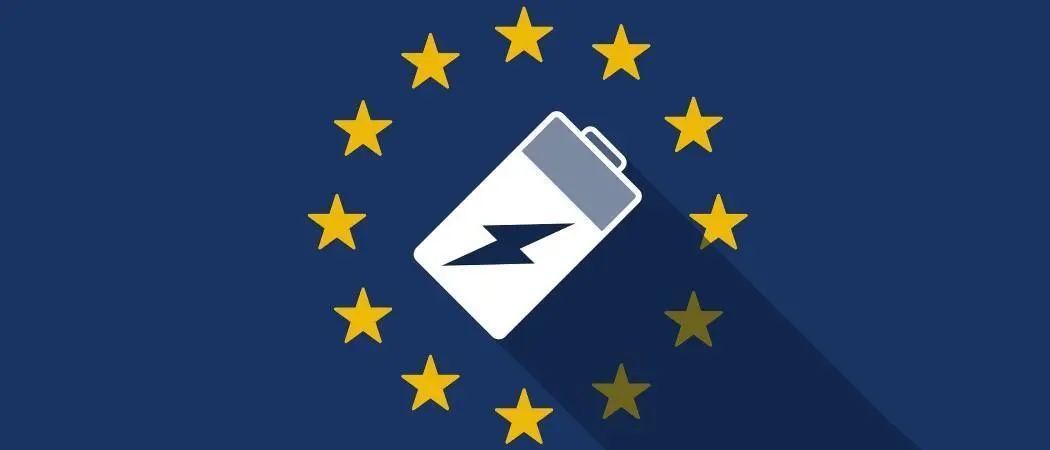
The new European Battery Regulation (EU) 2023/1542 came into force on August 17, 2023, and has had a profound impact on companies in the battery supply chain. From August 2023, when the regulation takes effect, to February 2025, when CFP filing becomes mandatory, to February 2028, when the maximum CFP threshold is implemented, companies will need to complete technical adjustments, data collection, and certification applications in a short period of time. This is a huge challenge for businesses.
The carbon footprint (CFP) requirements in this regulation are extremely strict and directly restrict the ability of companies to sell in the European market. In February 2025, the declaration of CO2 emissions (CFP) for the entire life cycle of a vehicle battery will become obligatory. This means that electric vehicle batteries exported to Europe must be accounted for in accordance with the EU's battery carbon footprint rules and audited by an EU-recognized certification body, otherwise they cannot be sold in the European market. In August 2026, a performance classification designed to identify the size of the CFP is required. This will give consumers a more intuitive understanding of the environmental impact of battery products and drive companies to move in a more environmentally friendly direction. In February 2028, cars will not be able to be sold within the European Union (EU) if they do not fall below the set maximum CFP threshold. This mandatory requirement will encourage companies to actively take steps to reduce carbon emissions during battery production and use.
Enterprises must not only face technical and process challenges, but also deal with the urgency of preparation time. Complex regulations require a short time to master all the requirements, the new battery regulations on the whole life cycle of the battery, including prohibited ingredients, carbon footprint, recycled ingredients, performance and durability and other requirements. Businesses need to fully understand and adapt to these complex regulations. Technically difficult and data demanding, carbon footprint accounting involves multiple life cycle stages, including raw material acquisition and pretreatment, major product production, distribution, scrap and recycling. Companies need to have data collection and analysis systems in place to ensure that CFP is calculated accurately. In addition to meet the requirements of the European Union certification, battery products need to be audited by the European Union recognized certification body. Businesses need to establish a partnership with a certification body and understand the certification process and requirements.
China's CATL New Energy Technology (CATL), the world's leading supplier of in-vehicle batteries, has taken an optimistic stance in the face of new battery regulations to be implemented in Europe. The company has accumulated more than 1 trillion pieces of data, from raw materials to recycling, that are stored and traceable for up to 20 years, which will provide strong support for carbon footprint (CFP) reporting and other related requirements in the new regulations.
Compared with the ease of China's Ningde era, Japanese automakers face some challenges in dealing with the new battery regulations in Europe, the most prominent of which is the grasp and management of "Scope 3" emissions. Scope 3 usually refers to indirect emissions that occur in the company's value chain (including raw material acquisition, product distribution and end use) that do not occur directly within the company's production facilities but are closely linked to the company's business activities. As the head of one Japanese automaker expressed distress, Scope 3 emissions data is often difficult to directly control and accurately measure because it involves multiple suppliers and complex supply chains. This complexity makes it necessary for automakers to seek the assistance of their suppliers in a concerted effort to reduce carbon emissions. Still, Nissan has taken aggressive steps to address the challenge. Starting in 2022, Nissan has set CO2 reduction targets for its suppliers for the coming years. The aim is to make the entire supply chain more environmentally friendly, ensuring that the environmental impact of products throughout their life cycle is controlled. Nissan also assesses the efforts of its suppliers to meet their emission reduction targets and determines the share of higher energy costs in component production. Such an approach would both incentivize suppliers to actively participate in emission reduction efforts and ensure that automakers maintain flexibility in cost control.
As the global focus on environmental protection and sustainable development continues to increase, the implementation of new battery regulations will become an important driving force to promote the battery industry to a more environmentally friendly and efficient direction. For all industry chain enterprises to maintain a keen insight into future market trends, seize opportunities, and strengthen their advantages in technology, data and supply chain management, in order to consolidate their leading position in the global market and ensure compliance and competitiveness in the global market.

The United States announced on Monday its commitment to provide 1.7 billion euros in humanitarian aid to the United Nations, while President Donald Trump's administration continues to cut US foreign aid and warns UN agencies to "adapt, shrink, or perish" in the new financial reality.
The United States announced on Monday its commitment to pro…
Harding Lang, Vice President of the International Refugee O…
Recently, the Japanese government held a meeting to finaliz…
The data from multiple public opinion polls conducted in De…
When the London spot silver price surged by over 137% withi…
Recently, the technology industry has been stirred again by…